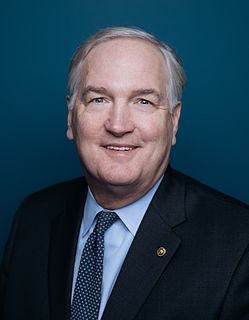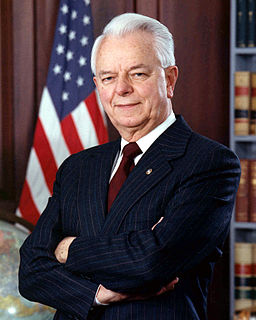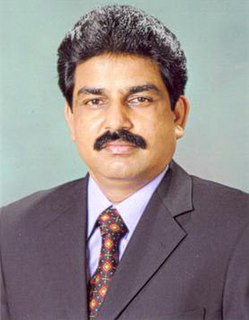A Quote by Alan Bullock
Hitler's dictatorship rested on the constitutional foundation of a single law, the Enabling Law.
Quote Topics
Related Quotes
And that law of the land which is constitutional, supporting that principle of freedom in maintaining rights and privileges, belongs to all mankind, and is justifiable before me. Therefore, I, the Lord, justify you, and your brethren of my church, in befriending that law which is the constitutional law of the land.
Give me the steady, uniform, unshaken security of constitutional freedom. Give me the right to be tried by a jury of my own neighbors, and to be taxed by my own representatives only. What will become of the law and courts of justice without this? The shadow may remain, but the substance will be gone. I would die to preserve the law upon a solid foundation; but take away liberty, and the foundation is destroyed.
The law is equal before all of us; but we are not all equal before the law. Virtually there is one law for the rich and another for the poor, one law for the cunning and another for the simple, one law for the forceful and another for the feeble, one law for the ignorant and another for the learned, one law for the brave and another for the timid, and within family limits one law for the parent and no law at all for the child.
Much of the Constitution is remarkably simple and straightforward - certainly as compared to the convoluted reasoning of judges and law professors discussing what is called 'Constitutional law,' much of which has no basis in that document....The real question [for judicial nominees] is whether that nominee will follow the law or succumb to the lure of 'a living constitution,' 'evolving standards' and other lofty words meaning judicial power to reshape the law to suit their own personal preferences.
Every heat engineer knows he can design his heat engine reliably and accurately on the foundation of the second law [of thermodynamics]. Run alongside one of the molecules, however, and ask it what it thinks of the second law. It will laugh at us. It never heard of the second law. It does what it wants. All the same, a collection of billions upon billions of such molecules obeys the second law with all the accuracy one could want
First of all, let me give my comments on the blasphemy law. This law was introduced by the military dictator General Ziaul Haq. No one demanded the blasphemy law in Pakistan. But he wanted to give protection to his undemocratic rule, dictatorship, by using religion. So Pakistan came into being in 1947, and from 1947 until 1986 no case against any minorities was registered under the protection of the blasphemy law. Nobody from minorities was killed and no act of violence happened [against them].








































